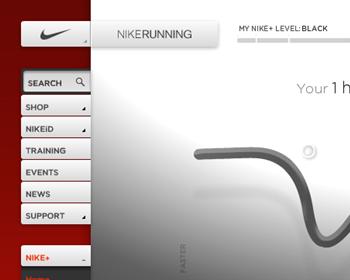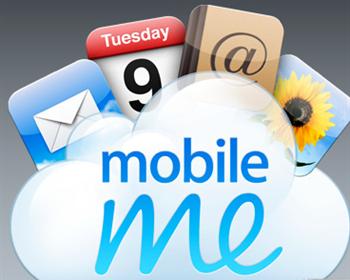As seems to always be the case these days when you look for a buzz in the world of technology then Apple’s brand name never seems to be far from the surface on any number of levels. Whether it be the high profile iPhone in it’s latest 3G incarnation or the world dominating presence of the iPod and it’s integral component the iTunes store which remains the biggest and most successful digital outlet for music. Then of course there is the range of computers the company makes because lets not forget before they redefined the way we bought music (and potentially stopped or at least slowed us down from stealing it) they were at heart a manufacturer of computer hardware and software.
Of course diversification was more necessary for them than most, even in the days after Steve Jobs returned to Apple and brought seeming salvation in the form of the iMac, if you looked out on the battlefield which was the never ending PC vs Mac debate there was never going to be any question who garnered the greater market share. It was and despite some changing trends, still is a Windows world.
Using the iPod and iTunes as a launch pad (and ingratiating themselves into the Windows camp at the same time) has allowed Apple to create the vaunted ‘halo effect’. Introducing an unfamiliar user base to the Apple brand and way of doing things. Of course to anyone who even vaguely follows the comings and goings in the IT world this is not breaking news.
It all makes good press for the boys and girls at Cupertino and while iPod/iPhone sales are keeping the pot plentiful there are still factors which Apple need to address which at best tarnish the brand and at worst are downright ridiculous problems which we shouldn’t have to address.
So what exactly are the problems that I am talking about?
Well, lets start with an issue that seems prevalent but so far hasn’t garnered many column inches in the tech press (surprisingly). Since upgrading to Leopard (and more specifically since the interim update to 10.5.5) there have been numerous reported incidents of degraded net speeds, particularly when browsing the web. I wondered whether this could be an issue that was down to my machine, but a speed test indicated my ISP connection was OK and while my bandwidth could have been higher it doesn’t necessarily correlate to what I am getting. If you want to have a look at some of the threads that mention this problem, simply Google “slow internet with Leopard” and have a look at the entries on a variety of forums (using an advanced search to limit the date to within the last month will narrow down the results for you somewhat). You’ll see a lot of people struggling with similar issues. Of course there is always the possibility that there is some form of user configuration issue (resetting the browser sometimes helps and if you are comfy poking around in Terminal then you can flush the DNS cache with the following command dscacheutil -flushcache). However for many people since moving to 10.5.5 many of the solutions you might have taken for granted to accelerate performance no longer seem to function (permissions repairs et al). For now the Apple discussion boards are relatively short on solutions, one can only hope however that the next release addresses this issue.
Which leads me nicely on to Safari, Apple’s very own browser does it would seem have a lot to recommend. Out of the box it renders pages much faster than it’s closest rivals, it has a nice uniform layout which is in keeping with the rest of the operating system and it has in many respects been something of a market leader in terms of features and functionality. Which leads me to ask, that why on so many occasions am I forced to ditch Safari and shuffle sideways to use Firefox. The latter browser might not be as quick off the blocks at page building as Apple’s own effort but on any given day it doesn’t suffer with the same page loading problems that bring Safari to it’s knees on a regular basis (scripts bringing the browser to a halt being one common aside). Now I’m not going to carp on this one for too long because in many cases any browser on any machine has to put up with a lot of issues that are quite frankly user inspired, whether it be being over zealous with bandwidth heavy content or simply bad coding practices, however it has to be said can you honestly always lay the causes at the feet of the site designers all the time. Especially when there are other browsers in the field which function very well with some of the more well known sites which can sometimes slay Safari.
Moving swiftly on and leaving the net issues behind for the time being, lets have a look at the vaunted Time Machine, Apple’s very own back up facility which when running normally performs an hourly backup to an external drive. I forget at what point mine stopped working, every now and again if left to it’s own devices it will claim to have created a new backup, although actually trying to access this backup will more often than not yield no results whatsoever. I do however now have a 1 Tb paperweight until I can figure out how to get my backups sorted (or potentially delete the lot and start again perhaps…nice). Once again, this would seem to be a common place problem which you can find referenced within the confines of Apple’s support discussions.
Elsewhere Apple’s revamped .Mac services now formally rebranded as MobileMe have been beset by problems which it seems simply refuse to go away. For those that are unaware MobileMe is Apple’s take on ‘cloud computing’. In essence making your data accessible wherever you have net access and a computer. So theoretically speaking you could save a document in your personal allocated space and then go somewhere else and work on it (on either a Mac or PC) making the whole process seamless. So far though there have been a number of issues dealing with accessibility and functionality, in fairness Apple have held their hands up and admitted the service is in some respects not up to standard and for existing subscribers to their service they have offered an extension to their yearly subscription which I have to say is playing fair. For me however and many others one of the bug bears of the service is the synchronisation aspect. When MobileMe is working correctly your machine’s should synch things like your contacts and calendars without issue any issue whatsoever. Alas I cant remember the last time this process worked correctly, once again this is an issue effecting many people (once again a Google search throws up plenty of evidence). Even if a synchronisation functions, there are examples of data being imported incorrectly. Kind of defeating the object of the exercise really.
Finally while I am rolling up my sleeves and cracking my knuckles, I’m taking a little look forward to the future and the up and coming release of Snow Leopard, alright it’s not actually due to ship till next year but a bone of contention for some is that Mac’s using the G5 PowerPC chipset wont be supported in the next release. Yeah, yeah I know some of the G5 stable of machines are looking a little long in the tooth now but you have to remember that some of the machines (and I’m talking heavy investment, high end towers now) only came to market as late as August 2006. If the freeze out comes as many are expecting is it honestly fair to declare a machine has a two year lifespan before it falls out of the upgrade loop. I do appreciate that Apple’s technological roadmap has changed considerably in the last few years and the shift to Intel was nothing short of major for the company, but still…two years and you are out of the loop, that stings a bit.
Just in case anyone reading this thinks I am some hacked up writer out looking to troll the Apple brand and just fan the flames of another tiresome Mac Vs PC debate. The truth of the matter is I am a long term Mac head. Using a selection of machines (starting from an old G3, a dual G5 and a Macbook) for the purposes of music making. My first Mac had an incredibly long run of upgrades and functionality and is still used occasionally to drive outboard MIDI stuff, maybe I was spoiled by the fact that it ran for so long and the newer tech doesn’t seem to have that longevity…


